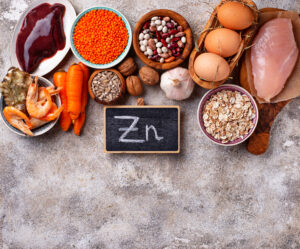Digestion discomfort such as gas, bloating and stomach pain may be eased with simple home remedies such as eating foods that aid in digestion, selecting appropriate types of food to consume and drinking sufficient amounts of water.
Yogurt contains probiotics which may help soothe digestive distress and discomfort, so include it as part of a daily regime along with fermented foods like kefir.
1. Probiotics
Probiotics are an invaluable way to restore balance in your digestive tract’s ecosystem and promote improved digestion. Probiotics help replenish it with good bacteria that contributes to overall gut health, providing relief.
Foods high in probiotics include yogurt, kefir and tempeh. Supplements also contain live active cultures with multiple strains for optimal performance.
Papaya contains papain, while other foods that support digestive health include psyllium husk, oatmeal, flaxseed and garlic are all great choices to add into the mix. A small dose of berberine may help by inhibiting H. pylori growth; slippery elm and marshmallow contain mucilage which coats and soothes your digestive tract lining for added support.
Fennel seeds and peppermint both possess antispasmodic properties which can relieve abdominal pain, gas, and bloating. Apple cider vinegar can also reduce stomach acid and related bloat caused by overeating or eating fatty foods; and Fennel seed tea or tinctures may be used to relieve heartburn symptoms.
2. Prebiotics
Prebiotics are compounds designed to feed and support the growth of healthy bacteria in your digestive system, known as probiotics. These microorganisms play an essential role in digestion, nutrient absorption, immune function and other areas.
Prebiotics can be found naturally in various foods, including asparagus, chicory root, Jerusalem artichoke, garlic, bananas, milk, honey, berries and whole grains. Prebiotics are nondigestible forms of fiber which provide food for your gut’s good bacteria.
Studies demonstrate the power of prebiotics to lower your risk of colorectal cancer, reduce inflammation in your colon and enhance bowel motility. They can also lower cholesterol, increase bone density and protect against autoimmune disease.
Notable prebiotics include short and long chain b-fructans such as fructooligosaccharides (FOS, inulin) and lactulose. Other options for prebiotic supplementation may include extracts of fennel, anise or chamomile with mucilage to create a protective coating in your digestive tract and can reduce gas, bloat, nausea and indigestion symptoms as well as treat Helicobacter pylori overgrowth.
3. Apple Cider Vinegar
Apple cider vinegar (ACV) can be an effective natural remedy to assist with digestion, including relieving bloating and gas symptoms. Although there is limited scientific support to back this claim up, many find ACV helpful as a natural treatment option.
ACV is produced when crushed apples are combined with yeast and “good” bacteria that ferments them into alcohol, which then undergoes another fermentation process to become acetic acid – killing harmful bacteria while providing antimicrobial benefits that aid digestion.
Diluted apple cider vinegar in water may help those experiencing digestive issues find relief, by stimulating stomach acids production to facilitate better digestion and absorption of food. ACV can also balance blood sugar levels after meals to decrease post-meal bloating or discomfort.
Avoid drinking ACV straight, as its acidity could damage teeth and the oesophagus, as well as worsen acid reflux or kidney issues. Instead, add other healthy habits into your lifestyle, such as drinking plenty of water daily, participating in daily physical exercise sessions and eating fibre-rich foods to achieve greater wellness.
4. Ginger
Ginger root has long been used as an effective remedy for digestion disorders and nausea. By stimulating enzymes that break down food into digestible portions, ginger can ease digestive distress while simultaneously relieving bloating, intestinal colic and nausea. Furthermore, ginger contains various bioactive compounds with anti-nausea properties as well as being an analgesic, carminative (stimulates digestive secretions), diuretic, expectorant and blood circulation promoting properties which all combine to treat and prevent these issues.
Baking soda provides an easy solution for indigestion by neutralizing stomach acid and soothing your digestive tract. You can find baking soda in many over-the-counter antacid preparations or add one teaspoonful to water and drink it as tea – peppermint tea can also provide soothing and stimulating relief from indigestion symptoms.
Be sure to include fermented cabbage such as sauerkraut as an excellent source of probiotic bacteria, or make your own natto to up your probiotic intake. Other options such as miso, fermented soybean paste from Japan, and cultured yogurt containing probiotic strains – try having one before or after each meal to help ease symptoms.
5. Turmeric
Turmeric adds vibrant yellow-orange color and flavor to curries, and is well known for its anti-inflammatory and antioxidant compounds. Furthermore, turmeric may help aid digestion while relieving acid reflux symptoms – this could be because turmeric improves function of tissues that line blood vessels which leads to reduced inflammation which in turn results in better circulation and possibly less heart disease.
Turmeric may help increase bile production, which in turn may help to alleviate bloating and gas, providing relief to patients experiencing period pain. Furthermore, turmeric has also been shown to protect your liver against damage caused by drugs as well as chronic illnesses like diabetes, hepatitis C or cancer.
To improve your digestive health, focus on including foods rich in probiotics and prebiotics in your diet, as well as taking a digestive enzyme supplement with proteins, carbs, and fats (proteases, amylases and lipases). Peppermint, ginger and fennel herbs offer soothing antispasmodic properties which may ease stomach cramping or relieve bloating; additionally you can take fibre supplements like psyllium husk for constipation prevention.





